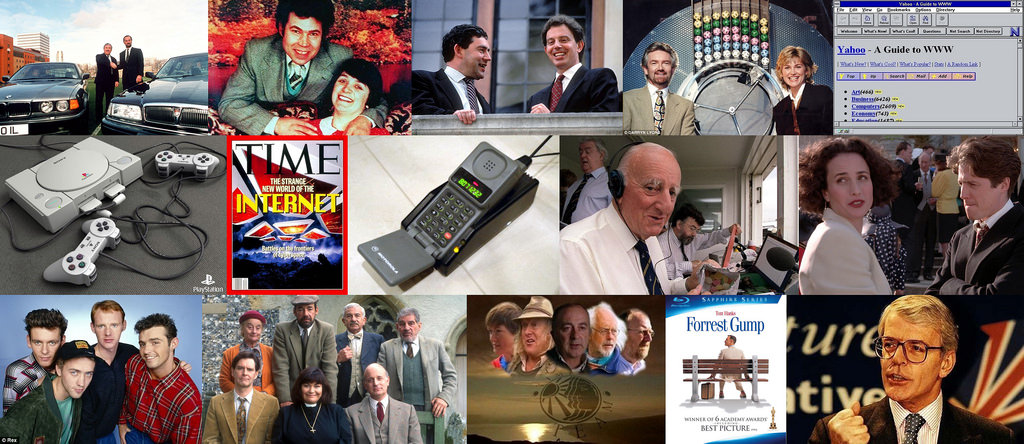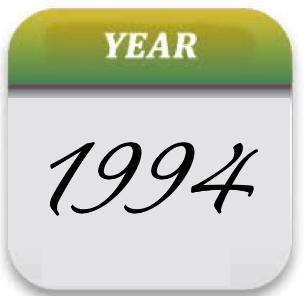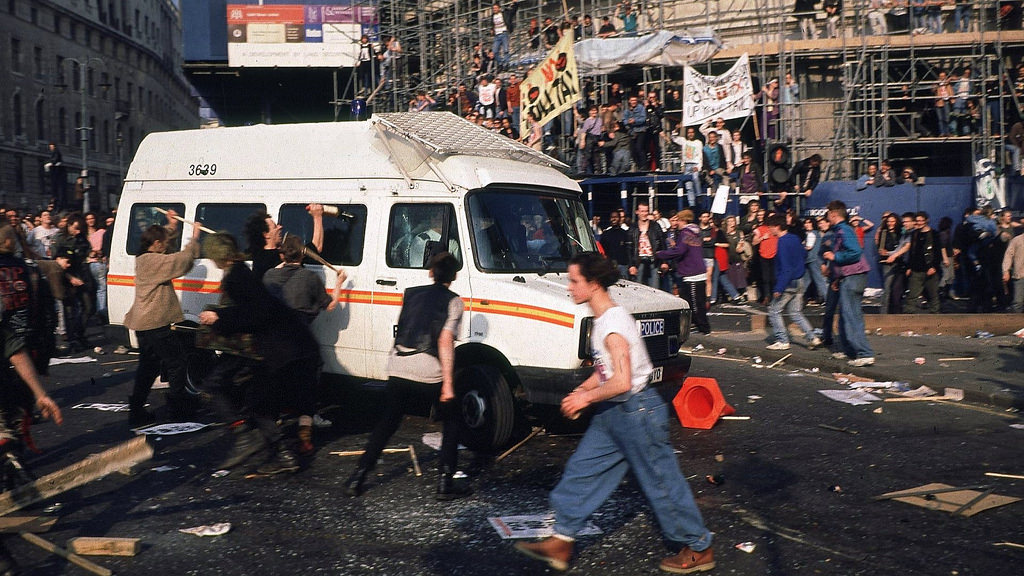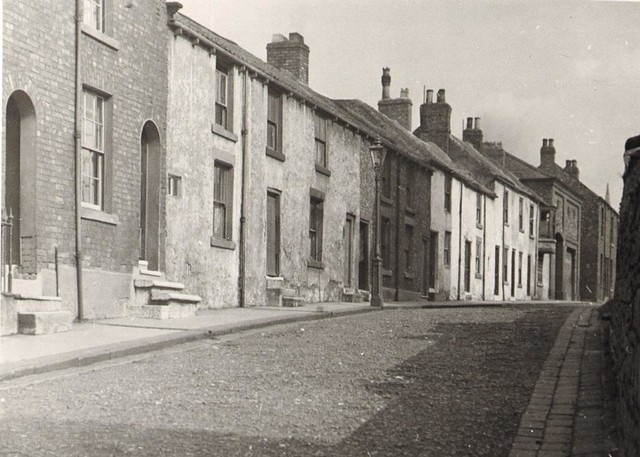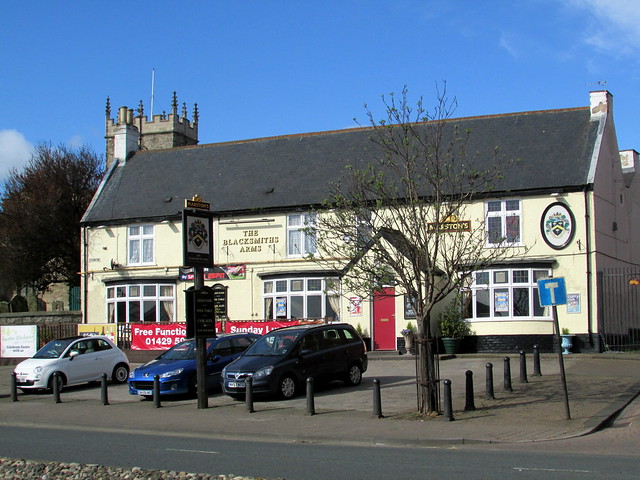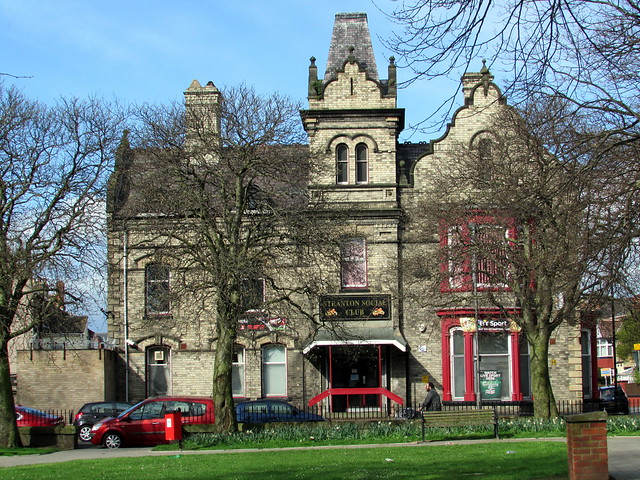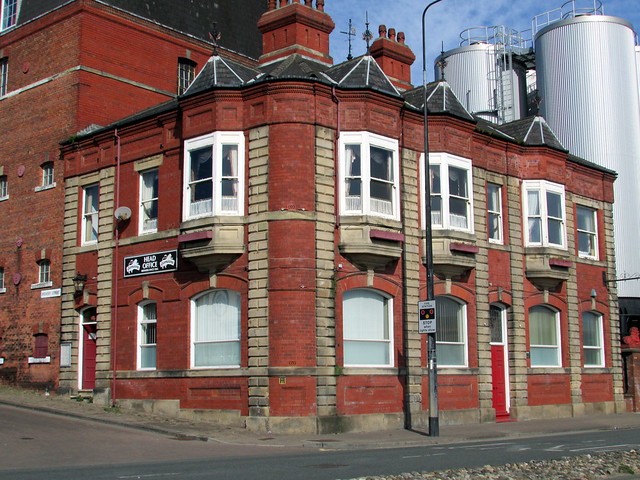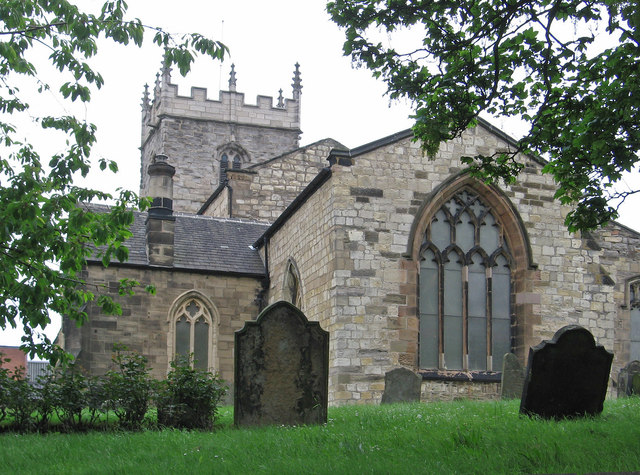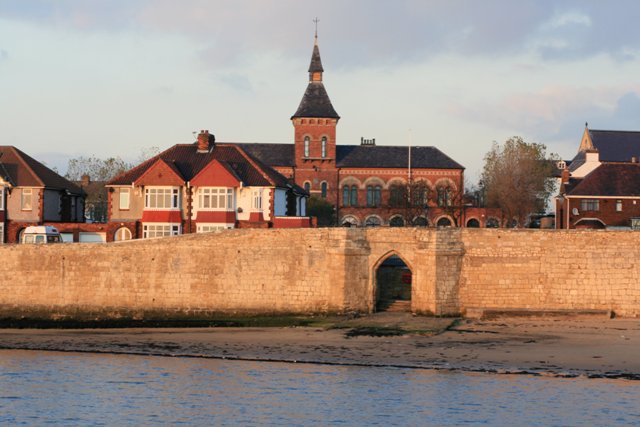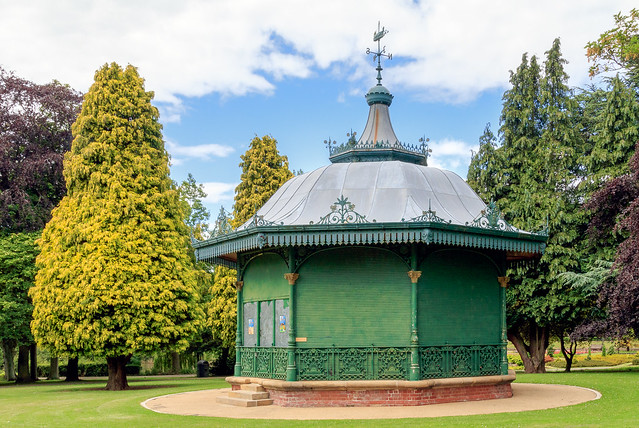That Was the Year That Was - 1994

-
Description
1994 After many years the English Channel is opened joining England to France for the first time, this year also marks the 50th Anniversary of the Allied landings in France and the beginning of the end of the Second World War. Tensions start over Inspection of Nuclear Plants in North Korea. Rover in the UK is purchased by BMW. In the US the First Genetically Engineered Tomatoes become available and the use and sale of GM Foods is approved. 1994: West charged as death toll mounts Fred West has been charged with two further murders following the discovery of more human remains in the garden of his Gloucester home. He is already facing a murder charge over the disappearance of his 16-year-old daughter Heather, whose dismembered body was found in the garden of the house at 25 Cromwell Street on Sunday. Police have identified the second body as that of 18-year-old Shirley Robinson. The other body has not yet been identified. Police using archaeological techniques began carefully digging up the back garden of Fred and Rose West's home on 24 February following a new tip-off about the disappearance of Heather seven years ago. Detective Constable Hazel Savage began investigating the Wests in 1992 after she received information they had been involved in child abuse. It led her to begin investigating Heather's disappearance. Fred West has admitted murdering his daughter, but denied Rose had any involvement. He has not given police any further clues as to the identities of the two other women found buried in his back garden. Police have just released the name of Shirley Robinson. Detective Superintendent John Bennett said: "She was heavily pregnant, some six to eight months. We also know from our inquiries that a woman using that name had connections with Wolverhampton, Leicester and Bristol." The other as yet unidentified body is that of a woman in her early 20s. The excavation of the garden has attracted much interest from neighbours. Some have laid flowers outside number 25. Police are still trying to contact other members of the West family. Frederick West was married twice and had a total of nine children. But it is not thought the unidentified body is another relative. Rover in the UK is purchased by BMW There have been angry clashes in the House of Commons over the sale of the last major British car manufacturer Rover. A London stock-market statement confirmed German prestige car-maker BMW is buying the majority share - 80% - in Rover from British Aerospace (BAe) for £800 million. Labour leader John Smith criticised the deal for only satisfying BAe's "short-term need for cash". Politicians on both sides are concerned the plan will leave the UK as the only Group of Seven nation without control of a leading car manufacturer. Conservative Prime Minister John Major defended the proposal saying: "The prospects for Rover in the future are excellent. The new arrangements will provide new export markets and more investment." The new Rover group, with a total of 100,000 employees, will produce more than a million cars a year worldwide and will be Europe's seventh largest car maker. BMW has told the Board of Trade the 33,000 jobs at Rover's three UK plants - in Birmingham, Oxford and Swindon - will be safe, along with future models in development. BMW made their secret bid to buy out BAe 10 days ago, at around the same time as BAe's long-term partner, Honda, put forward proposals to raise its stake in Rover to 47.5%. The Japanese car giant has held a 20% share in the company for the last 14 years but has long been resistant to taking a majority share. Rover chairman George Simpson flew to Tokyo as soon as the BAe board agreed - last Thursday - to accept BMW's offer. British Industry Minister Tim Sainsbury said: "I would like to reassure any Japanese investors that as far as this country is concerned we will continue to welcome Japanese investment." A statement from Honda said: "Now our partner has been acquired by a competitor we must start to reassess our entire operations in Europe." First National Lottery Draw Lambasted as a stealth tax and far more insultingly as a tax on the poor and stupid, but equally enjoyed by millions as a bit of fun and a potential life-changing route to riches, the National Lottery began with its first draw on Saturday November 19 1994, north of £40m having been spent on tickets. The organisers were doubtless hoping for a big individual winner to grab the headlines and fuel the fires of hope. But in the event there were seven winners sharing the jackpot, claiming around £800,000 each. For some it may have meant a spending splurge; for others (why do they do this?) they’ll have said it was not going to change them, and spent 50p on a new biro. Love it or loathe it the National Lottery draw as part of the British Saturday night was obviously here to stay, however vacuous the entertainment offered by celebrities whose special skills often involve the ability to smile and wave simultaneously. Noel Edmunds presented the first draw programme – funny I missed that one though more than 21 million Brits did tune in to the BBC to watch it – with Anthea Turner and Gordon Kennedy supporting him. Seven jackpot winners got around £800,000 each in the first lottery draw. Tony Blair Elected Labour Leader Britain lost a future PM when Scotsman John Smith died of a heart attack aged 55 with the keys to Number 10 within reach of his resurgent Labour Party. The untimely death of John Smith in May 1994 meant that the Labour Party required a new leader. Derby MP Margaret Beckett as deputy leader held the fort until the election could take place, and she was one of the three eventual candidates. The others were John Prescott , MP for Hull East and former trade union activist, and Anthony Blair , alumnus of Fettes College (‘the Eton of the North’), barrister, and MP for Sedgefield . Not standing was Gordon Brown , who as we learned over the coming years had made a pact with Blair to give the latter a free run in return for agreed policies and a sharing of powers. Blair-Brown Granita Pact Beyond the fact that some sort of agreement was reached between the two leading lights of the post-John-Smith Labour Party, little is actually clear about what became known as The Granita Pact. That lack of clarity did not only affect political reporting on the situation, but the way Britain was governed by Tony Blair and Gordon Brown between May 1 1997 and May 6 2010, their personal relationship obviously at best strained from quite early in that period to Tony Blair’s resignation in 2007. The Granita Pact was supposedly a deal struck between the two men at the Islington restaurant Granita on May 31 1994, two-and-a-half weeks after the death of John Smith , Labour’s leader for the previous two years. In very broad terms it is thought Gordon Brown kept out of the Labour leadership race to allow Tony Blair a relatively clear run (his eventual opponents Margaret Beckett and John Prescott never threatening his expected victory). In return Brown was to control much of the Labour Party’s domestic policy from his position as Shadow Chancellor and, after the expected Labour win at the next general election, as Chancellor. Additionally, Blair was to stand aside as Prime Minister at some unspecified time and back Brown to replace him. Nothing it seems was written down, thus inevitably both men had different views of what had been hammered out. Tech In 1994 your smartphone wasn't even a twinkle in Steve Jobs's eye. Nevertheless, 1994 was a momentous year for the tech industry. It was the year the World Wide Web was born, a.k.a. the Internet as we know it today. There were no smartphones, no iPads, no flat-screen TVs ... and, imagine this, no Google, no Netflix, no Dropbox. Cells phones were available but expensive. No touchscreens. The battery was as big as the phone. In 1994, Steve Jobs was still running NeXT Software, formerly NeXT Computer. 1994 was also the year Yahoo was founded. Instead of the Web, most people used paid, dial-up online services like AOL. You paid for every minute you used it. You installed AOL through a floppy disk (or CD) that arrived unasked-for in the mail. There were no thumb drives or cloud storage. You backed up files on a floppy disk. In 1994, Doom arrived, the seminal first-person shooter video game. It's been a hit ever since. Best-selling PC game: Doom II: Hell on Earth. The Sony Playstation arrived in 1994, too, and changed video games forever. The Sony PlayStation went on sale in Japan for 39,800 yen (about $360 at the time) in time for Christmas 1994. The DVD wasn't invented until 1995. So in 1994, you watched and recorded movies on VHS or Betamax. In 1994, there were 67 mobile phones for every 1,000 people in Britain. 1994 Timeline 4 January – Following the expulsion of the British ambassador from Sudan, the Foreign Office orders the Sudanese ambassador to leave Britain. 5 January – Brian Johnston, the BBC cricket commentator, dies aged 81. 8 January – Jayne Torvill and Christopher Dean win the British ice-dancing championship at the Sheffield Arena. 10 January – Two government ministers resign: Lord Caithness following the suicide of his wife, and Tim Yeo following the revelation that he fathered a child with Conservative councillor Julia Stent. 14 January – The Duchess of Kent joins the Roman Catholic Church, the first member of the Royal Family to convert to Catholicism for more than 300 years. 18 January – The Prince of Wales retires from competitive polo at the age of 45. 20 January - Despite the continuing economic recovery and falling unemployment, the Conservative government is now 20 points behind Labour (who score at 48%) in the latest MORI poll. Sir Matt Busby, the legendary former Manchester United manager, dies aged 84. 31 January – British Aerospace sells its 80% stake in Rover to BMW, leaving Britain without an independent volume carmaker. It is envisaged that the new Rover Group will produce more than 1million cars per year worldwide, and will be Europe's seventh largest carmaker. 1 February – John Smith (Labour Party leader) strongly criticises the sale of the Rover Group, saying that it only satisfied British Aerospace's short-term need for cash. In contrast, Prime Minister John Major backs the takeover as giving the Rover Group excellent prospects for export markets and investment. 4 February – British Coal confirms the closure of four more pits, a move which will claim some 3,000 jobs. 7 February – Stephen Milligan, Conservative MP for Eastleigh in Hampshire, is found dead at his home in Chiswick, West London. Police describe his death as "suspicious". 10 February – Three men are jailed in connection with the IRA bombings of Warrington gasworks 11 months ago. Pairic MacFhloinn is jailed for 35 years, Denis Kinsella for 25 years and John Kinsella for 20 years. 11 February – Forensic tests reveal that MP Stephen Milligan died of asphyxiation and that his death was probably the result of an auto-erotic sex practice. 12–27 February – Great Britain and Northern Ireland compete at the 1994 Winter Olympics in Lillehammer, Norway, and win 2 bronze medals. 21 February – Honda sells its 20% stake of the Rover Group, allowing BMW to take full control. This marks the end of the 13-year venture between the two carmakers, although the Honda-based Rover 400 will still go into production next year, becoming the seventh and final product of the venture. 24 February – Police in Gloucester begin excavations at 25 Cromwell Street, the home of 52-year-old builder Fred West. 8, 10 and 13 March – The IRA launch three successive mortar attacks on Heathrow Airport. 12 March - The first women are ordained as priests in the Church of England. 19 March - Europe's first inverted roller coaster, Nemesis (roller coaster), opens at Alton Towers. April – Economic growth for the first quarter of this year exceeded 1% – the highest for five years. 1 April – Women's Royal Air Force fully merged into Royal Air Force. 20 April – Unemployment has fallen to just over 2,500,000 – the lowest level in two years – as the economy continues to make a good recovery from the recession that ended a year ago. 28 April – Rosemary West, 40-year-old wife of suspected serial killer Fred West, is charged with three of the murders her husband stands accused of. 29 April – An opinion poll shows that Conservative support has fallen to 26% – their worst showing in any major opinion poll since coming to power 15 years ago. 5 May – Local council elections see the Conservatives lose 429 seats and control of 18 councils. 6 May – The Channel Tunnel, a 51 km (32 mi) long rail tunnel beneath the English Channel at the Strait of Dover, officially opened. 9 May – Release of Scottish group Wet Wet Wet's cover of the song Love Is All Around (1967), as featured in Four Weddings and a Funeral. From 29 May it will spend 15 consecutive weeks at number one in the UK Singles Chart, the longest spell ever attained by a British act. 12 May – John Smith (Labour Party leader) dies suddenly and unexpectedly of a heart attack in London. 13 May – Film Four Weddings and a Funeral released in the UK. 19 May – Robert Black, who was jailed for life four years ago for abducting a seven-year-old girl in the Scottish Borders, is found guilty of murdering three girls (Caroline Hogg, Susan Maxwell and Sarah Harper) who were killed during the 1980s and sentenced to life imprisonment with a recommended minimum term of 35 years. This means that Black, now aged 47, is set to remain in prison until at least 2029 and the age of 82. 25 May – The Camelot Group consortium wins the contract to run the UK's first National Lottery. 31 May – Tony Blair and Gordon Brown have dinner at the Granita restaurant in Islington and allegedly make a deal on who will become the leader of the Labour Party, and ultimately, the next Prime Minister of the United Kingdom. 2 June – Chinook crash on Mull of Kintyre: An RAF Chinook helicopter carrying more than twenty leading intelligence experts crashes on the Mull of Kintyre, killing everyone on board. 7 June – TV playwright Dennis Potter, 59, dies after a long battle against cancer. Potter's wife Margaret died only a week ago from the same illness. 9 June – David Chidgey wins the Eastleigh seat for the Liberal Democrats in the by-election sparked by Stephen Milligan's death; the Tory majority now stands at 15 seats compared with the 21-seat majority they gained at the general election two years ago. 13 June – The Conservatives suffer their worst election results this century, winning a mere 18 out of 87 of the nation's seats in the European parliament elections. The resurgent Labour Party, still without a leader as the search for a successor to the late John Smith continues, wins 62 seats. 16 June – Sir Norman Fowler resigns as chairman of the Conservative Party. 15 June – Britain's railways grind to a virtual standstill with a strike by more than 4,000 signalling staff. July – The strong economic recovery continues as the economy was reported to have grown by 1.4% during the second quarter of this year. 14 July – The Queen opens the new £150million headquarters of MI6 on the banks of the River Thames in London. 21 July – Tony Blair wins the Labour Party leadership election defeating John Prescott and Margaret Beckett. 26 July – A bomb explodes outside the Israeli Embassy, injuring 14 people. 18 August – The first MORI poll since Tony Blair became Labour Party leader gives him a massive boost in his ambition to become prime minister as his party scores at 56% and has a 33-point lead over the Conservatives, who are now just five points ahead of the Liberal Democrats. 20 August – Huddersfield Town move into their new all-seater Alfred McAlpine Stadium, which has an initial capacity of 16,000 and will rise to 20,000 later this year on the completion of a third stand; a fourth stand is also planned and would take the capacity to around 25,000. 26 August – Sunday Trading Act 1994 (5 July) comes into full effect, permitting retailers to trade on Sundays, though restricting opening times of larger stores to a maximum of six hours opening which must be between 10 am and 6 pm. This will have a significant social effect on shopping habits. 31 August – The Provisional Irish Republican Army declares a ceasefire. September – Lidl, a German discount food supermarket chain, opens the first 10 stores in Britain. October – Rover Group launches the Rover 100 – a facelifted version of the Metro. 10 October – With the economic recovery continuing at a strong rate, unemployment is now falling at twice the rate in Conservative constituencies than in Labour ones, giving the Conservatives hope that they could win the next general election (which has to be held by May 1997) despite Labour having led the way in the opinion polls for virtually all of the two-and-a-half years since the last election. 20 October – Cash-for-questions affair: The Guardian newspaper reports that two Conservative MPs, Neil Hamilton and Tim Smith, took bribes from Harrods chief Mohamed Al-Fayed to ask questions in the House of Commons. 30 October – Korean industrial giant Daewoo announces that it will start selling cars in Britain next year, and will be sold directly to customers through its own sales organisation rather than a traditional dealer network. 31 October – The Duke of Edinburgh attends a ceremony in Israel where his late mother, Princess Alice of Battenberg is honoured as "Righteous among the Nations" for sheltering Jewish families from the Nazis in Athens, during World War II. 3 November – Criminal Justice and Public Order Act receives Royal Assent. This changes the right to silence of an accused person, allowing for inferences to be drawn from their silence; increases police powers of "Stop and search" and gives them greater rights to take and retain intimate body samples; changes the law relating to collective trespass to land, criminalising some previously civil offences; tightens the law in some areas relating to obscenity, pornography and sexual offences; and lowers the age of consent for male homosexual acts from twenty-one years to eighteen, while setting the age for female acts at sixteen, for the first time in English law recognising the existence of lesbianism. 10 November – BBC1 television broadcasts the first episode of sitcom The Vicar of Dibley, created by Richard Curtis for its lead actress, Dawn French. 16 November – Unemployment has fallen to under 2,500,000 for the first time since the end of 1991. 19 November – The first UK National Lottery draw takes place. December – Rover Group ends production of its long-running Maestro and Montego ranges, which were strong sellers during the 1980s but in recent years had been produced in lower volumes due to the success of models like the Rover 200. 9 December – First meeting between the British government and Sinn Féin in more than 70 years. 14 December - Moors Murderer Myra Hindley, who has been in prison since 1966, is informed by the Home Office that she will never be released from prison. She is one of an estimated 15 life sentence prisoners who have been issued with the whole life tariff. The decision was taken by former Home Secretary David Waddington in 1990. 15 December – Tony Blair continues to enjoy dominance in the opinion polls as the latest MORI poll shows Labour support at an unprecedented 61%, putting them a massive 39 points ahead of the Conservatives. The Liberal Democrats have suffered a slump in popularity, gained just 13% of the vote in this poll compared to 20% a year ago. Ian Pearson wins the Dudley West by-election for Labour with nearly 70% of the votes, becoming the new MP for the constituency which was left vacant with the death of Conservative John Blackburn two months ago. The Tory majority has now fallen to 13 seats. 28 December – Labour Party leader Tony Blair claims that 40% of the workforce have been unemployed at some time since 1989, although there has never been more than 10.6% of the workforce out of work at the same time since then. Deregulation of the British milk market following the abolition of most functions of the Milk Marketing Board under terms of the Agriculture Act 1993. 0.5% of the UK population (approximately 300,000 people) now have access to the internet - five times as many people as in 1990. Television BBC1 Unknown – Animal Hospital (1994–2004) 30 January – Incredible Games (1994–1995) 13 March – Pie in the Sky (1994–1997) 25 May – Wipeout (1994–2002) 16 July – Pets Win Prizes (1994–1996) 24 July – Small Talk (1994–1996) 18 September – Paul Merton's Palladium Story (1994) 5 October – SMart (1994–2009) 10 November – The Vicar of Dibley (1994–2007) 27 November – A Mind to Kill (1994–2004) BBC2 9 January – The High Life (1994–1995) 19 January – The Day Today (1994) 4 July – Room 101 (1994–2007) 17 September – Top of the Pops 2 (1994–present) 19 September – Working Lunch (1994–2010) 27 September – The Fast Show (1994–1997, 2000) 24 October – Ready Steady Cook (1994–2010) ITV 4 January – Budgie the Little Helicopter (1994–1996) 10 January – Do-It-Yourself Mr. Bean (1994) 28 February – Talking Telephone Numbers (1994–1997) 10 April – The Knock (1994–2000) 25 April – Mind the Baby, Mr. Bean (1994) 29 May – Cadfael One Corpse Too Many (1994 Season 1 Episode 1) 5 June – Cadfael The Sanctuary Sparrow (1994 Season 1 Episode 2) 12 June – Cadfael The Leper of Saint Giles (1994 Season 1 Episode 3) 19 June – Cadfael Monk's Hood (1994 Season 1 Episode 4) 15 July – Body Heat (1994–1996) 27 July – Wycliffe (1994–1998) 7 September – Police Camera Action! (1994–2008) 25 October – Back to School Mr. Bean (1994) 12 November – Open Fire (1994) Channel 4 16 January – Time Team (1994–2013) 12 February – Don't Forget Your Toothbrush (1994–1995) 30 July – The People's Parliament (1994–1999) Films Highest-grossing film at the box office: Forrest Gump (Robert Zemeckis). 1994 Winner of Best Picture at the Academy Awards: Schindler’s List. Charts Number-one singles "Twist and Shout" - Chaka Demus & Pliers "Things Can Only Get Better" - D:Ream "Without You" - Mariah Carey "Doop" - Doop "Everything Changes" - Take That "The Most Beautiful Girl in the World" - Prince "The Real Thing" - Tony Di Bart "Inside" - Stiltskin "Come On You Reds" - Manchester United Football Squad "Love Is All Around" - Wet Wet Wet "Saturday Night" - Whigfield "Sure" - Take That "Baby Come Back" - Pato Banton "Let Me Be Your Fantasy" - Baby D "Stay Another Day" - East 17 Sports 1994 Winner of the English Premier League: Manchester United FC, coached by Alex Ferguson. 1994 UEFA Champions League Winners: AC Milan (beat FC Barcelona 4-0 at the Olympic Stadium in Athens). 1994 Super Bowl Winners: the Dallas Cowboys (beat the Buffalo Bills 30-13). 1994 Wimbledon men’s singles champion: Pete Sampras (beat Goran Ivanisevic 7-6, 7-6, 6-0). 1994 Wimbledon women’s singles champion: Conchita Martinez (beat Martina Navratilova 6-4, 3-6, 6-3). Economics 1994 Average UK house price £68,032. 1994 UK gross domestic product (current prices) £628,700,000,000. -
Owner
brizzle born and bred -
Source
Flickr (Flickr) -
License
What does this mean? Attribution-NonCommercial-ShareAlike License
-
Further information
Link: https://www.flickr.com/photos/20654194@N07/18074230420/
Resource type: Image
Added by: Peter Smith
Last modified: 7 years, 11 months ago
Viewed: 846 times
Picture Taken: 2015-05-30T11:39:10 -
Co-Curate tags
